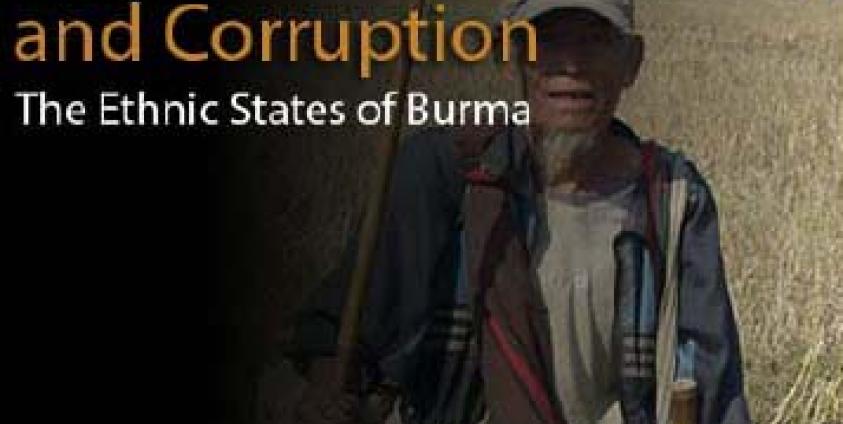The 98 page Discrimination, Conflict and Corruption: The Ethnic States of Burma, which was launched by Ethnic Nationalities Council (ENC) yesterday in Chiangmai, has once again urged an end to continuation of “a military solution to what is primarily a political problem” with the non-Burman ethnic groups.
The 98 page Discrimination, Conflict and Corruption: The Ethnic States of Burma, which was launched by Ethnic Nationalities Council (ENC) yesterday in Chiangmai, has once again urged an end to continuation of “a military solution to what is primarily a political problem” with the non-Burman ethnic groups.
“(All along), ethnic groups have called for a genuine federal union based upon the principles of equality for all of the country’s citizens,” it reads. “(But) The governments of Burma, especially from 1962 until 2010, have pursued only a military solution to what is primarily a political problem, and have consequently given ethnic groups no other option but to engage in armed struggle.”
The latest instance was the previous military government’s response to the ceasefire groups call for greater say in the internal affairs of their respective states. Its coerced creation of Border Guard Forces (BGFs) in which ethnic armed forces were required to accept Burma Army authority, it says, had led to the resumption of war in Karen, Shan and Kachin states. “(These) clearly show that the ethnic issue needs to be addressed not by military force but by political compromise.”
Lt-Gen Yawdserk, Chairman of the Shan State Army (SSA)’s political arm Restoration Council of Shan State (RCSS) who was not present at the report launch, told SHAN earlier:
“The Burmese military always like to claim it has been formed to uphold the Three Causes (i.e. Non-disintegration of the Union, Non-disintegration of National Solidarity and Perpetuation of National Sovereignty). They must however realize that it was them and not us non-Burmans who had endangered the Three Causes in the first place.”
Dr Lian H. Sakhong, Vice President of the ENC, who answered most of the questions from the media, also urged Naypyitaw to terminate its twin process of Democratization in the urban areas and Militarization in the country side to eliminate the ethnic peoples. “Both are mutually opposed to each other,” he said.
Dr Suikhar, the ENC’s Secretary General, meanwhile, called upon the new government to sign the Convention on the Elimination of All Forms of Racial Discrimination. “Among the Asean nations, only Malaysia and Burma are not signatories to it,” he pointed out.
The ENC was formed in 2001 and “entrusted with the task of fostering unity and cooperation between all ethnic nationalities” to prepare for a Tripartite Dialogue and a transition to democracy.
It declared earlier that the ENC itself would not be negotiating for peace, but would provide technical assistance to groups negotiating with Naypyitaw.
Since 18 August 2011, when it announced its invitation for peace talks to Burma’s armed groups, the new government has entered talks with 7 of them. Talks with the Kachin Independence Organization (KIO) however broke down and conflict has escalated between the two sides. Two others with the United Wa State Army (UWSA) and National Democratic Alliance Army (UDAA) were successful. The rest with the Karen National Union (KNU), Democratic Buddhist Army (DKBA), Shan State Progress Party (SSPP) and New Mon State Party (NMSP) are still “off and on” going.


